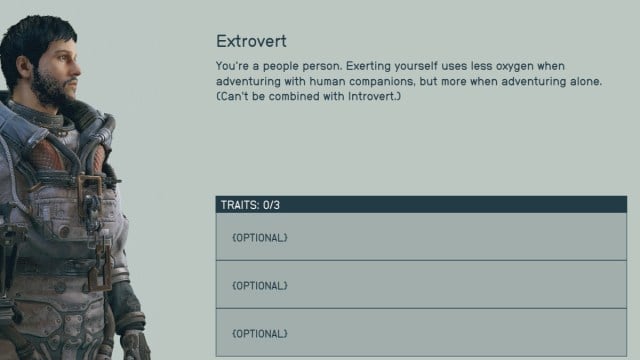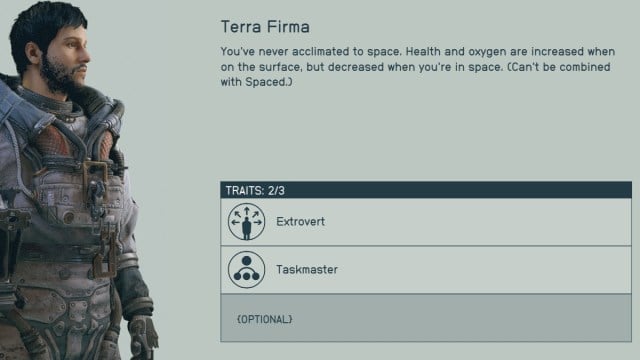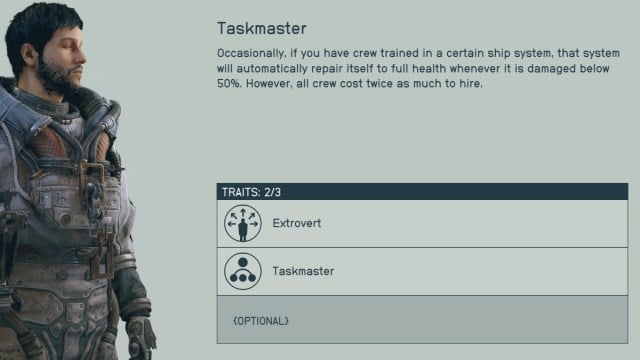When you first begin Starfield, you’re presented with a lot of choices that’ll have a decent impact later in your run. There’s, of course, difficulty, which will determine how much you have to sweat to keep up, along with whether your character will be a normal average human or some abomination instead. You know which one is better. With those choices comes the possibility of traits, which can provide some smaller stat buffs that persist for the rest of your playthrough. Here are the best-starting traits in Starfield.
What Are Traits in Starfield?
Traits in Starfield are similar to backgrounds in Starfield, but are more refined into personality traits instead of defining your past. These don’t have any effect on dialogue options, and instead are small buffs that each come with a caveat. Dream Home, for example, gives you a home the moment you start playing, but comes with a massive mortgage you must pay off, heavily dampening your cash reserves early on.
Which Starting Traits Should You Choose in Starfield?

There are three traits (ones that I use in my playthrough, conveniently) that I would suggest you run. The first of those three is the Extrovert trait, one that will be useful for 99% of players. With the Extrovert trait, you’ll use less oxygen when playing with a companion, and more when you don’t have an active companion. Given that you’ll likely want one with you to draw fire and deal some extra damage, this isn’t anything to worry about.
Related: Starfield Marika Boros Companion Guide – How to Recruit & Skills

Along with the Extrovert trait, Terra Firma makes for a great second choice. With the Terra Firma trait active in Starfield, your health and oxygen supplies are increased on the surface of planets, but are decreased while you’re in space. In my playthrough, I only fought in space a handful of times, whereas fights on the planet’s surface were far more plentiful. This may as well be free health and oxygen at this rate.

Finally is the Taskmaster trait, which allows your ship to automatically repair itself to full health when dropping below 50% health, at the cost of crew costing more to hire. Hiring crew members won’t happen very often since your companions already provide great stats as crewmates, so you’ll rarely feel the downsides of this trait. That, and healing to your ship can be massive in a pinch.
These are the only three traits I suggest taking, as the rest either provide not enough pros to outweigh the cons or are for very specific things you likely won’t take part in. I’ve been running all three above in my playthrough, and they’ve been a great help since I like running around a lot (and apparently taking any and all enemy fire.
Do You Have to Take Three Different Traits in Starfield?
With all this being said, you can determine how many traits you want to take for your Starfield playthrough. If none of the above sounds appealing to you, or you only want one or two, then feel free to take that many. This guide is merely a guideline, and shouldn’t be taken as a be-all-end-all for traits.
If you’re still working on your character, check out our guide on the best starting backgrounds in Starfield.





Published: Aug 31, 2023 07:50 pm